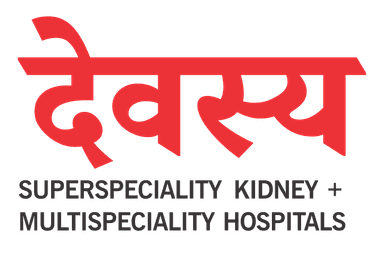PUJ Obstruction Treatments & Surgery
How Devasya Hospital helps to cure PUJ obstruction?
Devasya Hospital provides effective treatment for PUJ (Pelviureteric junction) obstruction, including laparoscopic pyeloplasty. Laparoscopic pyeloplasty is a minimally invasive surgical procedure performed at Devasya Hospital to treat PUJ obstruction.
Laparoscopic pyeloplasty involves making a few small incisions in the abdomen through which a laparoscope (a thin, flexible tube with a camera) and surgical instruments are inserted. The surgeon uses these instruments to reconstruct the obstructed area at the pelviureteric junction, allowing for improved urine flow. The advantage of laparoscopic pyeloplasty is that it offers several benefits over traditional open surgery, such as smaller incisions, reduced postoperative pain, shorter hospital stays, and faster recovery times.
In addition to laparoscopic pyeloplasty, Devasya Hospital may offer other treatment options for PUJ obstruction depending on the individual case. The treatment approach will be tailored to the specific needs and preferences of the patient, ensuring the best possible outcome.
FAQs
PUJ obstruction can have both congenital and acquired causes. Congenital PUJ obstruction is typically due to a developmental abnormality where the connection between the renal pelvis and the ureter is narrowed or blocked. Acquired PUJ obstruction can occur later in life due to factors such as kidney stones, scarring from previous surgeries or infections, or compression of the ureter by surrounding structures.
To diagnose PUJ obstruction, several tests may be performed. These can include imaging studies such as ultrasound, CT scan, or MRI, which help visualize the anatomy and any blockages or abnormalities. A urologist may also use a procedure called a diuretic renogram, where a radioactive tracer is injected, and images are taken before and after administering a diuretic to evaluate the kidney's drainage function.
The symptoms of PUJ obstruction can vary from mild to severe. Common symptoms include flank pain, which may be dull or colicky in nature, blood in the urine (hematuria), recurrent urinary tract infections, and hydronephrosis (enlargement of the kidney due to urine accumulation). Some individuals may also experience symptoms such as urinary frequency, urgency, or difficulty in passing urine.
Early signs of PUJ obstruction may include mild discomfort or pain in the flank region or lower back. This pain may come and go or be triggered by certain activities or positions. Additionally, individuals may notice changes in their urinary patterns, such as increased frequency or urgency.
If left untreated, PUJ obstruction can lead to various complications. These may include recurrent urinary tract infections, kidney stones, kidney damage or loss of function, and an increased risk of developing high blood pressure or other kidney-related conditions. Prompt diagnosis and appropriate treatment can help prevent or manage these complications.
Since congenital PUJ obstruction cannot be prevented, the focus is mainly on managing acquired causes. It's important to maintain good urinary tract health by drinking an adequate amount of water, maintaining a healthy weight, and avoiding excessive consumption of salt and certain medications that can increase the risk of stone formation. Regular check-ups with a healthcare professional can help identify any potential risk factors or early signs of PUJ obstruction and allow for timely intervention if needed.



